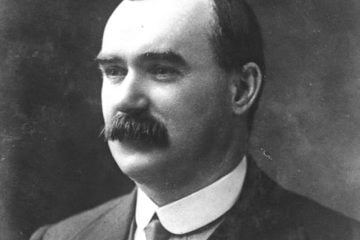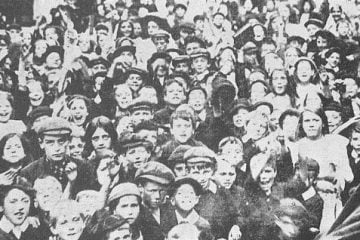In August 1917, Lenin took pen to paper to write one of his most seminal works, The State and Revolution. This preceded the Russian Revolution, and was used to organise and educate the Russian working class. The spreading of communist propaganda has always been a key task of revolutionaries. Similarly, The Communist Manifesto was smuggled across borders and into factories to get the ideas of Marxism to the workers.
The role of the state is a key question for Marxists. Without understanding the role of the state, we can never truly achieve an end to class society. The state itself was formed through the onset of the division of society into classes.
In the heat of revolutionary upheaval, Lenin took time out of organising the Bolsheviks to write this piece. While all revolutionaries appreciate this work, you would be excused for wondering why Lenin thought this was worth writing in the heat of revolution.
Lenin was a master of marxist theory and method. In August 1917, the fundamental question which existed in Russia was the role of the state and the approach the revolutionaries should take to it. Therefore, The State and Revolution is not just an important piece now, but was a fundamental part of the development of the Russian Revolution.
Role of the state
Firstly, Lenin explains the role of the state; it is, he says, born through class antagonism. The mere existence of the two great classes, (the bourgeoisie and proletariat) enforces the need for a state to manage society.
Throughout history the ruling class have always been the minority, meaning there was a need to suppress the democracy of the majority. This is the conclusion of a system with a small, parasitic class who hoard all the wealth and resources in society. A state is needed to manage their affairs and enforce the class system.
It is the gulf between these two classes that causes revolution. The simple truth of class society is that the ruling class is a minority, they cannot rule by the weight of their numbers but by their ability to stop the majority fighting back.
Lenin describes the state as being made up of bodies of armed men. This is illustrated by the police and army today. In spring 2020, during the BLM protests across America, protesters shouted ‘who do you serve, who do you protect’ to the US police force. Unconsciously, this struck on this fundamental point of Lenin’s. It is a myth of capitalist society, that the state and government exist to protect us. Moments of heightened class tension, like the BLM protests last year, expose that lie. In the final analysis, the state exists to protect private property and the interests of the ruling class.
How we can change it
Lenin makes the point that because the states interests combat those of the proletariat the state will not dismantle without a fight.
An important tenet of Lenin’s position on the state is the idea of the state “withering away”. This is a quote taken directly from Engels on the state. Lenin draws on it because many so-called ‘Marxists’ at the time were suggesting that Engels meant there is no need to overthrow the state as it can ‘wither away.’
Lenin proves conclusively that this is not what Engels meant. A bourgeois state cannot wither away and must be overthrown. This is the lesson Marx drew from the Paris Commune of 1871. A worker’s state in developing socialism can, however, wither away as class society withers away.
This line by Lenin brings up some questions though, why is there a need for a revolution if the state will die anyway? Why can’t it be solved with political reform?
Importantly, political reform is not the answer because this has to be done via government, an institution of the ruling class. Put simply, we cannot trust the enemy to do our job.
Lenin’s ‘The State and Revolution’ is vital to political struggle today. We cannot make the same mistakes of the past, we cannot allow any institutions of the ruling class to remain. We must overthrow the capitalist state machinery if we have any hope of ending police violence, unfair incarceration, war and violence. Ultimately, Lenin makes the point that we must wrench the world into the hands of the proletariat.
To join the fight and learn more, join the MSF!
Archie Watson




0 Comments